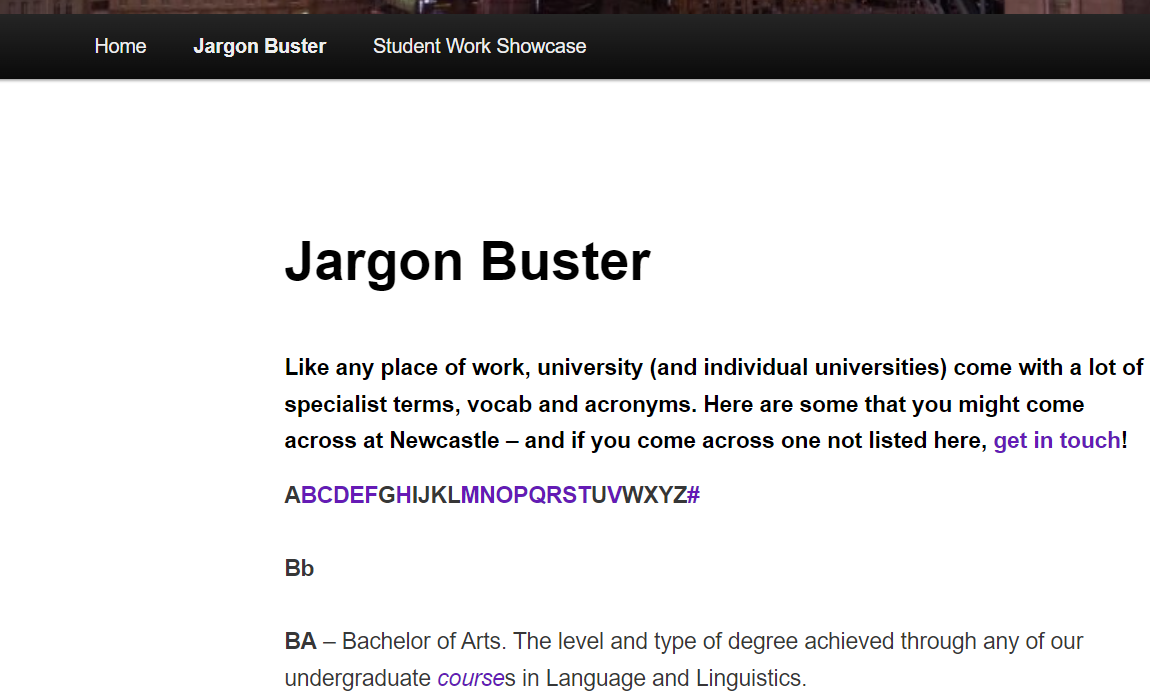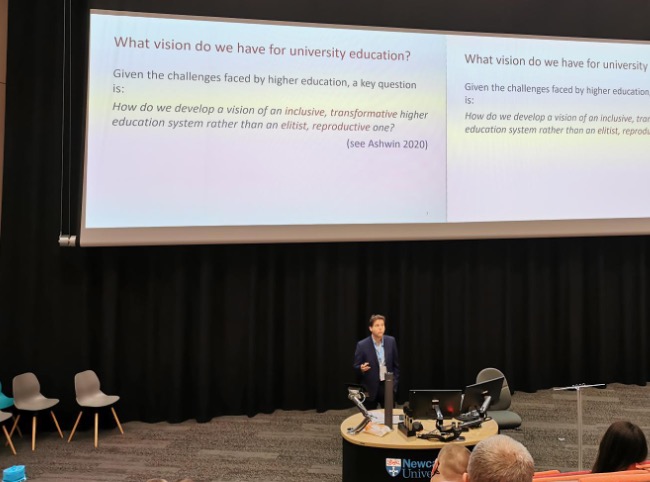One presentation at the conference stood out for me as it sought to help students overcome transition to university from school in a way which we often don’t think about. The presenters use of TEL would help overcome any barriers for students developing their ‘academic identity’ in belonging to the university, and gave me some ideas about how we could integrate their ideas in our courses.
EPIC: SELLL’s answer to enculturing undergraduates in academia
Dr Heike Pichler and Dr Rebecca Woods, SELLL (in addition, others from SELLL were involved in the project), discussed the hidden curriculum and what can be done to expose it to students. ‘Hidden‘ is because we don’t make it explicit in our curriculae.
The hidden curriculum consists of all the unofficial expectations academia has of their students, including an expectation that they will speak our academic language. We expect students to know what we are talking about when we use university jargon. For instance, how many students know what a DPD is when they arrive in Fresher’s Week? We talk about modules, but we don’t necessarily mean the same thing as ‘modules’ in Canvas which they meet as soon as they join a course.
The presenters have come up with a solution:’EPIC’. Part of this project is a jargon-buster, acting as a glossary for acronyms most academics take for granted, some very specific to SELLL. You can find it on their school blog: https://blogs.ncl.ac.uk/epic/jargon-buster/

So where would this fit with technology use in FMS? A simple solution would be to put our own glossary on our Canvas induction areas or school blogs. How about an icebreaker in induction week to get students involved in finding out what our acronyms mean? Perhaps a Padlet embedded in Canvas for students to post their long versions.
Another aspect of the hidden curriculum the presenters flagged is assessment: do our students know what we mean when we ask them to write reports/essays/presentations/lay presentations etc? Being fluent in academic language and competent in the activities of academia is likely to increase success rates. We can use our Canvas assignment pages to make explicit what we expect them to do in terms of their output, and signpost where they can get help with study skills and writing development at the library (https://www.ncl.ac.uk/library/resources-and-study-support/). Of course, that doesn’t mean students will actually read our materials, but it may be helpful.


